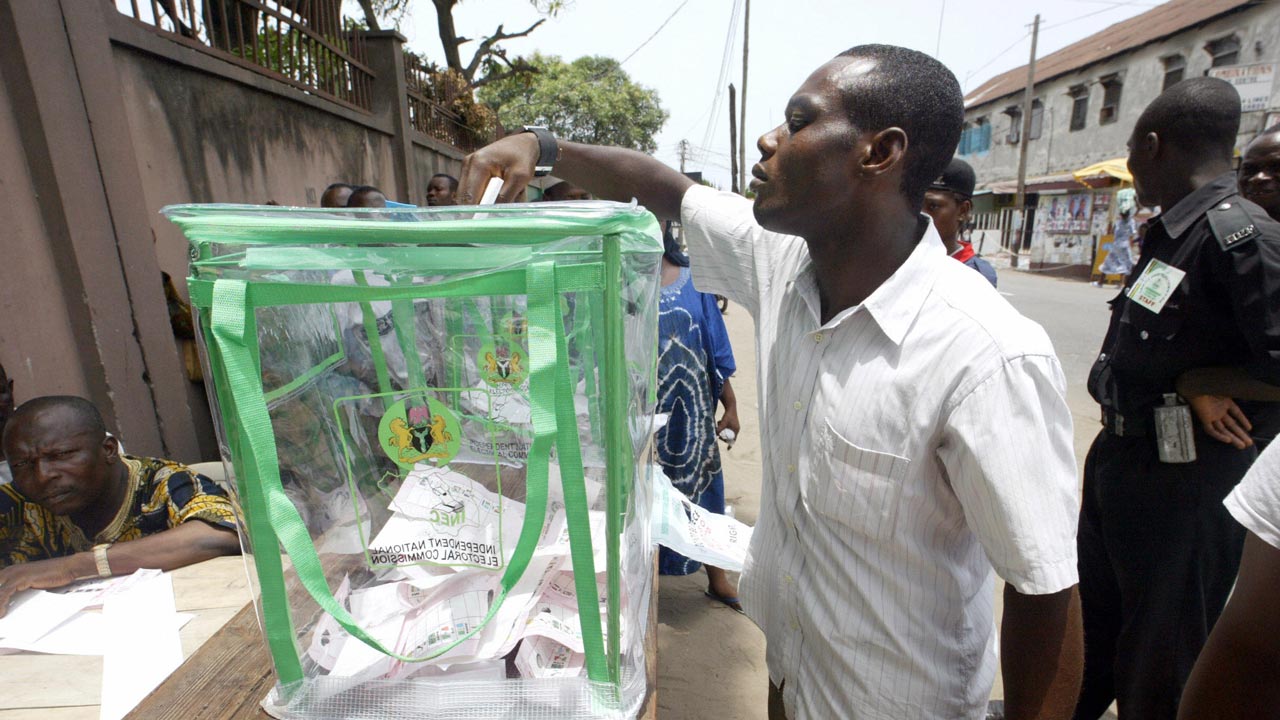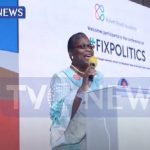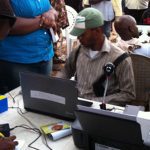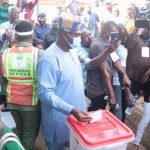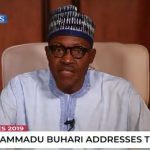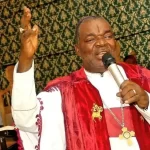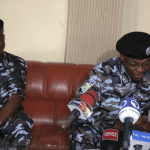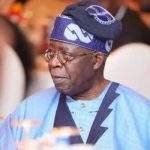 A civil society group has called on the Independent National Electoral Commission, INEC, to include vote monitoring education to its duties.
A civil society group has called on the Independent National Electoral Commission, INEC, to include vote monitoring education to its duties.
The group, YIAGA Africa wants the electoral umpire to take lessons from the just concluded Sierra Leonean election, by promoting accountability and civic participation.
The group was joined by officials from Sierra Leone’s electoral commission, for a meeting to discuss the successes and challenges of that country’s election.
The Independent National Electoral Commission is a public institution in charge of electoral processes in Nigeria. It was established in 1998 by former military head of the states, General Abdulsalam Abubakar to conduct and oversee the 1999 elections which restored Nigeria to democratic rule.
Before then, different electoral commissions had been set up and disbanded. They include: Electoral Commission of Nigeria established in 1959. The Federal Electoral Commission (FEDECO). It was established first in 1960 to oversee the post-independence elections. It was dissolved in 1966 after the military took over the government. It was constituted again in 1978 by General Olusegun Obasanjo and it conducted the election which brought in the Second Republic. It also conducted another general election in 1983. The National Electoral Commission was established in 1995 by the former head of the state, General Sani Abacha to conduct another set of elections. After the death of Abacha in 1998, General Abdulsalam Abubakar dissolved the electoral commission and formed the Independent National Electoral Commission. Since then, INEC Nigeria has conducted and overseen every general and regional election conducted afterwards.
The Independent National Electoral Commission conducted the historic 1999 election which brought the former President Olusegun Obasanjo in power and ushered Nigeria into the fourth republic. Since then, INEC has overseen the general and regional elections of 2003, 2007, 2011, and 2015. The commission is currently headed by Professor Yakubu Mahmud.
Advertisement

 A civil society group has called on the Independent National Electoral Commission, INEC, to include vote monitoring education to its duties.
A civil society group has called on the Independent National Electoral Commission, INEC, to include vote monitoring education to its duties.
The group, YIAGA Africa wants the electoral umpire to take lessons from the just concluded Sierra Leonean election, by promoting accountability and civic participation.
The group was joined by officials from Sierra Leone’s electoral commission, for a meeting to discuss the successes and challenges of that country’s election.
The Independent National Electoral Commission is a public institution in charge of electoral processes in Nigeria. It was established in 1998 by former military head of the states, General Abdulsalam Abubakar to conduct and oversee the 1999 elections which restored Nigeria to democratic rule.
Before then, different electoral commissions had been set up and disbanded. They include: Electoral Commission of Nigeria established in 1959. The Federal Electoral Commission (FEDECO). It was established first in 1960 to oversee the post-independence elections. It was dissolved in 1966 after the military took over the government. It was constituted again in 1978 by General Olusegun Obasanjo and it conducted the election which brought in the Second Republic. It also conducted another general election in 1983. The National Electoral Commission was established in 1995 by the former head of the state, General Sani Abacha to conduct another set of elections. After the death of Abacha in 1998, General Abdulsalam Abubakar dissolved the electoral commission and formed the Independent National Electoral Commission. Since then, INEC Nigeria has conducted and overseen every general and regional election conducted afterwards.
The Independent National Electoral Commission conducted the historic 1999 election which brought the former President Olusegun Obasanjo in power and ushered Nigeria into the fourth republic. Since then, INEC has overseen the general and regional elections of 2003, 2007, 2011, and 2015. The commission is currently headed by Professor Yakubu Mahmud.
Advertisement

 A civil society group has called on the Independent National Electoral Commission, INEC, to include vote monitoring education to its duties.
A civil society group has called on the Independent National Electoral Commission, INEC, to include vote monitoring education to its duties.
The group, YIAGA Africa wants the electoral umpire to take lessons from the just concluded Sierra Leonean election, by promoting accountability and civic participation.
The group was joined by officials from Sierra Leone’s electoral commission, for a meeting to discuss the successes and challenges of that country’s election.
The Independent National Electoral Commission is a public institution in charge of electoral processes in Nigeria. It was established in 1998 by former military head of the states, General Abdulsalam Abubakar to conduct and oversee the 1999 elections which restored Nigeria to democratic rule.
Before then, different electoral commissions had been set up and disbanded. They include: Electoral Commission of Nigeria established in 1959. The Federal Electoral Commission (FEDECO). It was established first in 1960 to oversee the post-independence elections. It was dissolved in 1966 after the military took over the government. It was constituted again in 1978 by General Olusegun Obasanjo and it conducted the election which brought in the Second Republic. It also conducted another general election in 1983. The National Electoral Commission was established in 1995 by the former head of the state, General Sani Abacha to conduct another set of elections. After the death of Abacha in 1998, General Abdulsalam Abubakar dissolved the electoral commission and formed the Independent National Electoral Commission. Since then, INEC Nigeria has conducted and overseen every general and regional election conducted afterwards.
The Independent National Electoral Commission conducted the historic 1999 election which brought the former President Olusegun Obasanjo in power and ushered Nigeria into the fourth republic. Since then, INEC has overseen the general and regional elections of 2003, 2007, 2011, and 2015. The commission is currently headed by Professor Yakubu Mahmud.
Advertisement

 A civil society group has called on the Independent National Electoral Commission, INEC, to include vote monitoring education to its duties.
A civil society group has called on the Independent National Electoral Commission, INEC, to include vote monitoring education to its duties.
The group, YIAGA Africa wants the electoral umpire to take lessons from the just concluded Sierra Leonean election, by promoting accountability and civic participation.
The group was joined by officials from Sierra Leone’s electoral commission, for a meeting to discuss the successes and challenges of that country’s election.
The Independent National Electoral Commission is a public institution in charge of electoral processes in Nigeria. It was established in 1998 by former military head of the states, General Abdulsalam Abubakar to conduct and oversee the 1999 elections which restored Nigeria to democratic rule.
Before then, different electoral commissions had been set up and disbanded. They include: Electoral Commission of Nigeria established in 1959. The Federal Electoral Commission (FEDECO). It was established first in 1960 to oversee the post-independence elections. It was dissolved in 1966 after the military took over the government. It was constituted again in 1978 by General Olusegun Obasanjo and it conducted the election which brought in the Second Republic. It also conducted another general election in 1983. The National Electoral Commission was established in 1995 by the former head of the state, General Sani Abacha to conduct another set of elections. After the death of Abacha in 1998, General Abdulsalam Abubakar dissolved the electoral commission and formed the Independent National Electoral Commission. Since then, INEC Nigeria has conducted and overseen every general and regional election conducted afterwards.
The Independent National Electoral Commission conducted the historic 1999 election which brought the former President Olusegun Obasanjo in power and ushered Nigeria into the fourth republic. Since then, INEC has overseen the general and regional elections of 2003, 2007, 2011, and 2015. The commission is currently headed by Professor Yakubu Mahmud.
Advertisement

 A civil society group has called on the Independent National Electoral Commission, INEC, to include vote monitoring education to its duties.
A civil society group has called on the Independent National Electoral Commission, INEC, to include vote monitoring education to its duties.
The group, YIAGA Africa wants the electoral umpire to take lessons from the just concluded Sierra Leonean election, by promoting accountability and civic participation.
The group was joined by officials from Sierra Leone’s electoral commission, for a meeting to discuss the successes and challenges of that country’s election.
The Independent National Electoral Commission is a public institution in charge of electoral processes in Nigeria. It was established in 1998 by former military head of the states, General Abdulsalam Abubakar to conduct and oversee the 1999 elections which restored Nigeria to democratic rule.
Before then, different electoral commissions had been set up and disbanded. They include: Electoral Commission of Nigeria established in 1959. The Federal Electoral Commission (FEDECO). It was established first in 1960 to oversee the post-independence elections. It was dissolved in 1966 after the military took over the government. It was constituted again in 1978 by General Olusegun Obasanjo and it conducted the election which brought in the Second Republic. It also conducted another general election in 1983. The National Electoral Commission was established in 1995 by the former head of the state, General Sani Abacha to conduct another set of elections. After the death of Abacha in 1998, General Abdulsalam Abubakar dissolved the electoral commission and formed the Independent National Electoral Commission. Since then, INEC Nigeria has conducted and overseen every general and regional election conducted afterwards.
The Independent National Electoral Commission conducted the historic 1999 election which brought the former President Olusegun Obasanjo in power and ushered Nigeria into the fourth republic. Since then, INEC has overseen the general and regional elections of 2003, 2007, 2011, and 2015. The commission is currently headed by Professor Yakubu Mahmud.
Advertisement

 A civil society group has called on the Independent National Electoral Commission, INEC, to include vote monitoring education to its duties.
A civil society group has called on the Independent National Electoral Commission, INEC, to include vote monitoring education to its duties.
The group, YIAGA Africa wants the electoral umpire to take lessons from the just concluded Sierra Leonean election, by promoting accountability and civic participation.
The group was joined by officials from Sierra Leone’s electoral commission, for a meeting to discuss the successes and challenges of that country’s election.
The Independent National Electoral Commission is a public institution in charge of electoral processes in Nigeria. It was established in 1998 by former military head of the states, General Abdulsalam Abubakar to conduct and oversee the 1999 elections which restored Nigeria to democratic rule.
Before then, different electoral commissions had been set up and disbanded. They include: Electoral Commission of Nigeria established in 1959. The Federal Electoral Commission (FEDECO). It was established first in 1960 to oversee the post-independence elections. It was dissolved in 1966 after the military took over the government. It was constituted again in 1978 by General Olusegun Obasanjo and it conducted the election which brought in the Second Republic. It also conducted another general election in 1983. The National Electoral Commission was established in 1995 by the former head of the state, General Sani Abacha to conduct another set of elections. After the death of Abacha in 1998, General Abdulsalam Abubakar dissolved the electoral commission and formed the Independent National Electoral Commission. Since then, INEC Nigeria has conducted and overseen every general and regional election conducted afterwards.
The Independent National Electoral Commission conducted the historic 1999 election which brought the former President Olusegun Obasanjo in power and ushered Nigeria into the fourth republic. Since then, INEC has overseen the general and regional elections of 2003, 2007, 2011, and 2015. The commission is currently headed by Professor Yakubu Mahmud.
Advertisement

 A civil society group has called on the Independent National Electoral Commission, INEC, to include vote monitoring education to its duties.
A civil society group has called on the Independent National Electoral Commission, INEC, to include vote monitoring education to its duties.
The group, YIAGA Africa wants the electoral umpire to take lessons from the just concluded Sierra Leonean election, by promoting accountability and civic participation.
The group was joined by officials from Sierra Leone’s electoral commission, for a meeting to discuss the successes and challenges of that country’s election.
The Independent National Electoral Commission is a public institution in charge of electoral processes in Nigeria. It was established in 1998 by former military head of the states, General Abdulsalam Abubakar to conduct and oversee the 1999 elections which restored Nigeria to democratic rule.
Before then, different electoral commissions had been set up and disbanded. They include: Electoral Commission of Nigeria established in 1959. The Federal Electoral Commission (FEDECO). It was established first in 1960 to oversee the post-independence elections. It was dissolved in 1966 after the military took over the government. It was constituted again in 1978 by General Olusegun Obasanjo and it conducted the election which brought in the Second Republic. It also conducted another general election in 1983. The National Electoral Commission was established in 1995 by the former head of the state, General Sani Abacha to conduct another set of elections. After the death of Abacha in 1998, General Abdulsalam Abubakar dissolved the electoral commission and formed the Independent National Electoral Commission. Since then, INEC Nigeria has conducted and overseen every general and regional election conducted afterwards.
The Independent National Electoral Commission conducted the historic 1999 election which brought the former President Olusegun Obasanjo in power and ushered Nigeria into the fourth republic. Since then, INEC has overseen the general and regional elections of 2003, 2007, 2011, and 2015. The commission is currently headed by Professor Yakubu Mahmud.
Advertisement

 A civil society group has called on the Independent National Electoral Commission, INEC, to include vote monitoring education to its duties.
A civil society group has called on the Independent National Electoral Commission, INEC, to include vote monitoring education to its duties.
The group, YIAGA Africa wants the electoral umpire to take lessons from the just concluded Sierra Leonean election, by promoting accountability and civic participation.
The group was joined by officials from Sierra Leone’s electoral commission, for a meeting to discuss the successes and challenges of that country’s election.
The Independent National Electoral Commission is a public institution in charge of electoral processes in Nigeria. It was established in 1998 by former military head of the states, General Abdulsalam Abubakar to conduct and oversee the 1999 elections which restored Nigeria to democratic rule.
Before then, different electoral commissions had been set up and disbanded. They include: Electoral Commission of Nigeria established in 1959. The Federal Electoral Commission (FEDECO). It was established first in 1960 to oversee the post-independence elections. It was dissolved in 1966 after the military took over the government. It was constituted again in 1978 by General Olusegun Obasanjo and it conducted the election which brought in the Second Republic. It also conducted another general election in 1983. The National Electoral Commission was established in 1995 by the former head of the state, General Sani Abacha to conduct another set of elections. After the death of Abacha in 1998, General Abdulsalam Abubakar dissolved the electoral commission and formed the Independent National Electoral Commission. Since then, INEC Nigeria has conducted and overseen every general and regional election conducted afterwards.
The Independent National Electoral Commission conducted the historic 1999 election which brought the former President Olusegun Obasanjo in power and ushered Nigeria into the fourth republic. Since then, INEC has overseen the general and regional elections of 2003, 2007, 2011, and 2015. The commission is currently headed by Professor Yakubu Mahmud.
Advertisement

 A civil society group has called on the Independent National Electoral Commission, INEC, to include vote monitoring education to its duties.
A civil society group has called on the Independent National Electoral Commission, INEC, to include vote monitoring education to its duties. A civil society group has called on the Independent National Electoral Commission, INEC, to include vote monitoring education to its duties.
A civil society group has called on the Independent National Electoral Commission, INEC, to include vote monitoring education to its duties. A civil society group has called on the Independent National Electoral Commission, INEC, to include vote monitoring education to its duties.
A civil society group has called on the Independent National Electoral Commission, INEC, to include vote monitoring education to its duties. A civil society group has called on the Independent National Electoral Commission, INEC, to include vote monitoring education to its duties.
A civil society group has called on the Independent National Electoral Commission, INEC, to include vote monitoring education to its duties. A civil society group has called on the Independent National Electoral Commission, INEC, to include vote monitoring education to its duties.
A civil society group has called on the Independent National Electoral Commission, INEC, to include vote monitoring education to its duties. A civil society group has called on the Independent National Electoral Commission, INEC, to include vote monitoring education to its duties.
A civil society group has called on the Independent National Electoral Commission, INEC, to include vote monitoring education to its duties. A civil society group has called on the Independent National Electoral Commission, INEC, to include vote monitoring education to its duties.
A civil society group has called on the Independent National Electoral Commission, INEC, to include vote monitoring education to its duties. A civil society group has called on the Independent National Electoral Commission, INEC, to include vote monitoring education to its duties.
A civil society group has called on the Independent National Electoral Commission, INEC, to include vote monitoring education to its duties.
